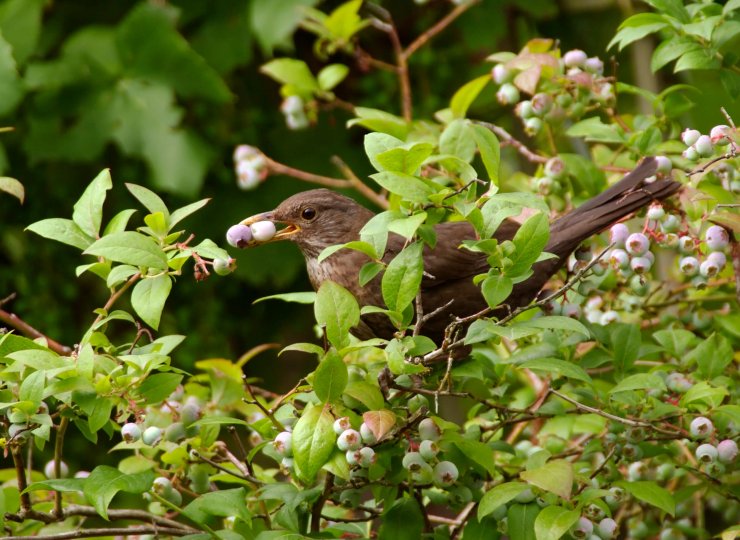
A bird steals some blueberries from the bush
In general, blueberry plants tend to be relatively disease- and insect-free. Your biggest pest challenge is likely to be the neighborhood birds. If you want any blueberries for yourself, invest in some netting to protect your crop.
Ready to Pick?
Think of your first year of setting the plants as an investment in the future. You may not get many berries your first season. Once a plant is three years old, it can produce 2 to 3 pints of berries in a season. After a plant reaches five years old, you could look forward to 10 pints or more—just make sure you have some netting handy so the birds don’t get all the berries.
Use a gentle touch when you’re harvesting your blueberries. Only pick the berries that are ripe; you may need to work your way around some berries that are just not quite ready yet. Use a gentle roll of your thumb and forefinger to tease the berry off the stem. Be sure not to handle the berries too much.
You may notice that the berry skin looks slightly powdered; that’s called the bloom—a natural waxy coating that protects the berries from insects and bacteria. It also helps the fruit retain its natural moisture. If you rub the berry, the protective covering will come right off and leave you with a shiny blueberry that you better plan on eating soon!
If you’re harvesting lowbush blueberries, common in Maine and parts of eastern Canada, you’ll need a special hand rake; it looks like a cross between a comb and a dustpan.
Do birds eat some of your blueberry crop? Have you ever tried netting—or some other way of repelling—to keep the birds from enjoying your crop? Do you have any special harvesting techniques to share?



